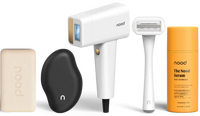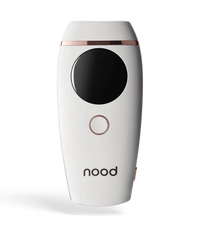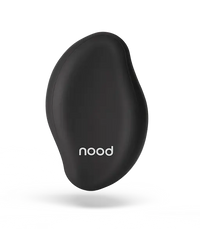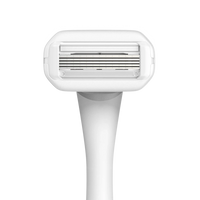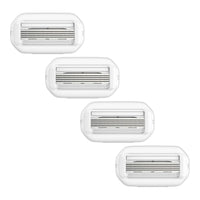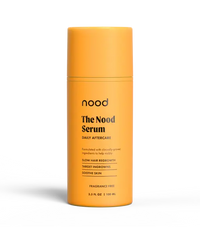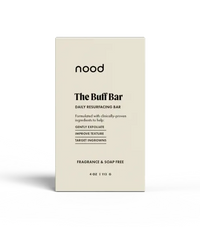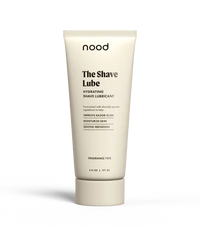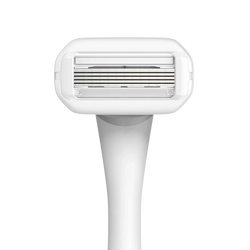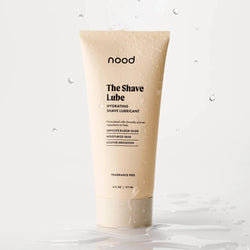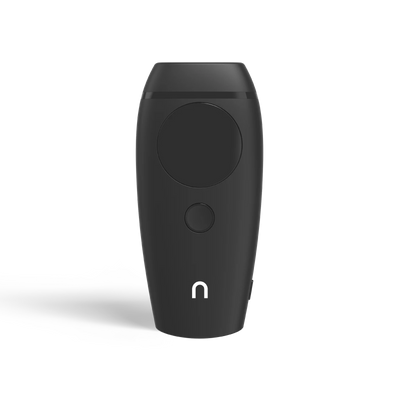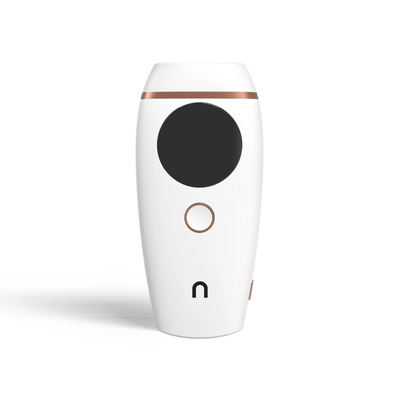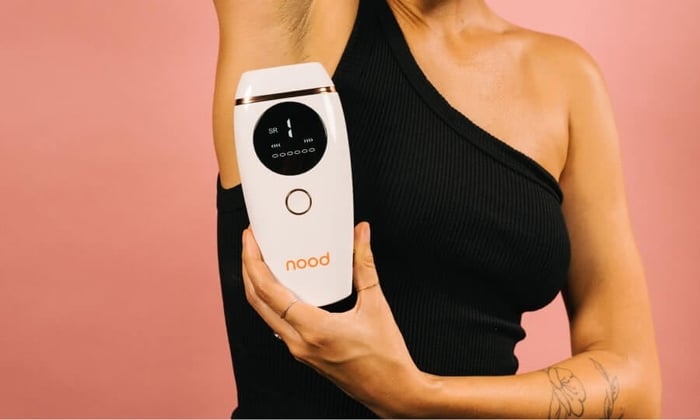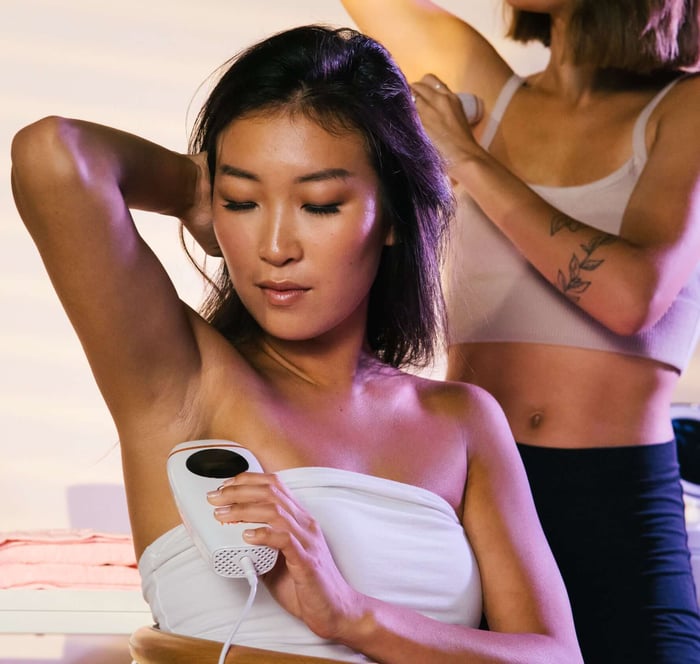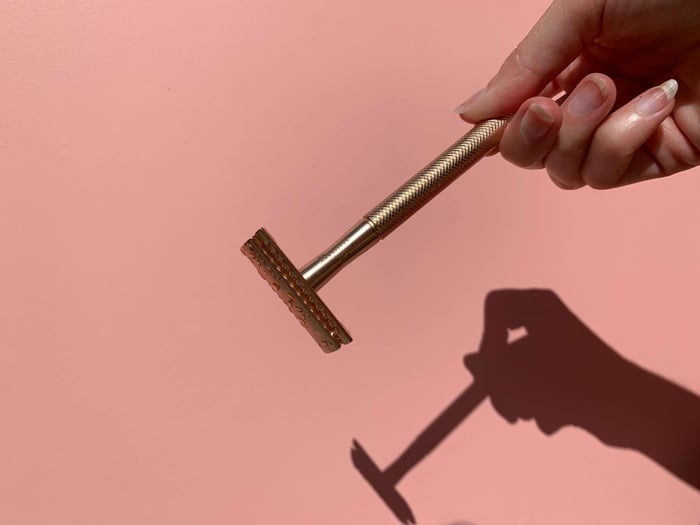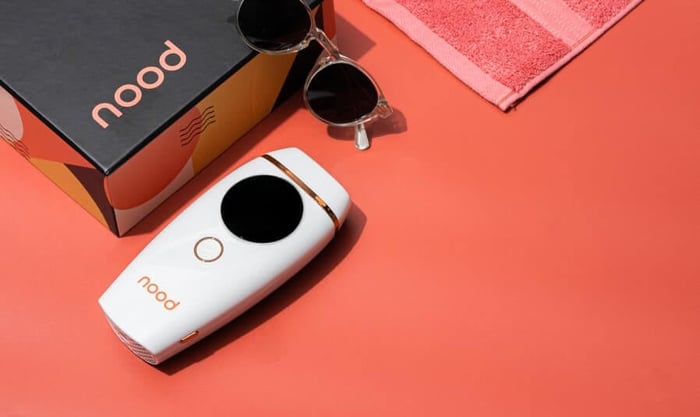
Does Laser Hair Removal Hurt?
Laser hair removal is one of the best ways to reduce unwanted hair permanently, but there’s one thing that comes up again and again as a barrier to treatment: the potential pain.
Does laser hair removal hurt the first time? Laser hair removal can hurt the first time, but it doesn’t hurt for everyone. There are so many variables that can affect what you feel during your laser hair treatment, including the body part you target and the timing of your appointment.
If you’re trying out at-home hair removal with an IPL (intense pulsed light) device, you may not feel much discomfort at all.
We’re here to give you the bare truth on laser hair removal and what you should expect if you’re trying to decide whether it’s worth it.
Spoiler: We think it is — especially if you want to replace waxing, shaving, plucking, and every other hair removal method you’ve tried.
Table of Contents
What’s the pain like?
A laser hair removal session can feel different for everyone. Your pain tolerance comes into play. The most common description for professional laser hair removal is a rubber band snapping against your skin. Some compare it to repeated pin pricks.
Others embrace the no pain, no gain idea behind removing unwanted hair.
Is laser hair removal more painful than waxing? Laser hair removal is not more painful than waxing. Waxing is over faster, but it’s still one of the more painful hair removal methods out there.
Much like tweezing, waxing pulls hair from the root. Laser hair removal works by targeting the melanin or pigment of the hair follicles without breaking the surface of your skin.
How does the pain of laser hair removal compare to waxing? Compared to waxing, the pain of laser hair removal is less intense. Most also say laser hair removal is less painful than electrolysis.
As far as discomfort after, some report a mild sunburn sensation.
Does laser hair removal hurt more than a tattoo? Laser hair removal does not hurt more than a tattoo. The 2 really don’t compare. Laser tattoo removal is more painful, too.
That isn’t to say laser hair removal treatments are a walk in the park for everyone. It can also depend on the treated area.
Not All Areas Feel the Same
The thinner the skin in the treatment area, the more discomfort you might feel. You’ll probably feel zaps to your upper lip more intensely than your legs for the simple reason that the skin on your lip is so much thinner.
If you want to remove unwanted hair in a more sensitive part of the body like the bikini area, you should expect more discomfort.
Does laser hair removal hurt down there? Laser hair removal can hurt down there. Your bikini line is more sensitive than other areas of the body. Expect those sensitive areas to feel more discomfort than a session targeting your stomach or sideburns.
The most sensitive area for many is the underarms. Fortunately, this is also a body part that responds remarkably well to laser hair removal. The hair follicles in your armpits are typically nice and dark and in contrast with the rest of your skin. Those are ideal laser conditions.
Give it Time
Time is a factor for what you’ll feel during your session. The length of your session matters when it comes to pain during your laser hair removal treatment. The longer the session and the larger the treatment area, the more time you’ll spend under the laser.
How long does it take to get laser hair removal? It only takes about 10-15 minutes to get laser hair removal in smaller areas of the body. Larger areas or sections with thicker, courser hair may take longer.
Any pain you feel should decrease with each session, too. You’ll be on your way to permanent hair removal, after all, so the laser has to do less work with each treatment as your hair gets finer and sparser.
Most laser hair treatment plans ask you to come back every 4-6 weeks for sessions, but that can depend on your hair growth cycles. At Nood, we recommend treatments twice a week for the first 2 months to start, with touch ups for regrowth every 3-6 months.
Be Prepared
What is the best way to prepare for laser hair removal? The best way to prepare for laser hair removal is to shave the treatment area before your session and be nice to your body beforehand.
That means increasing your water intake, getting plenty of rest, and pre-medicating if you have a low pain threshold.
If you’re working with a professional, talk to them about pain remedies before your treatment begins. They may recommend products to use before and after your session, or use more icing during your treatment to reduce your discomfort.
Hydrate!
Hydration impacts your pain threshold. Dehydration can make you more sensitive to pain. We’re talking about water here, though. Drinking a bunch of caffeine before your session won’t help. Caffeine is a mild diuretic and can make it harder for you to relax.
Being jittery during your session won’t do anything for your comfort levels.
Shave First
We promise you won’t have to clutch those razors forever, but shaving before your session makes it easier for the laser to reach the hair follicles. The lasers are doing some impressive work here, damaging follicles to the point of no return.
Shaving and gentle exfoliating before your session also makes it less likely that you’ll have to deal with ingrown hairs after your treatment.
Get Some Rest
Get plenty of sleep in the days before your treatment. You’ll feel more relaxed on the day of your session, especially if it’s your first one. Fatigue is closely linked with chronic and everyday pain. Your pain tolerance decreases the more tired you are.
If you’re having trouble sleeping in the days leading up to your laser treatment sessions, find other ways to calm your body. Get regular exercise and soothe your mind with walks, yoga, or meditation. If you’re feeling crummy before your treatment, you likely won’t feel better during.
Premedicate
Over-the-counter pain relievers before your treatment can help prevent much of the discomfort during your session. A topical numbing cream before your appointment can also reduce pain, especially if you’re hitting very sensitive areas.
Heavy-duty creams may include a combo of benzocaine, lidocaine, and tetracaine. Some providers may just recommend lidocaine.
Whatever you decide, talk to the professionals first. Talk to your doctor if you’re interested in pain relievers in case of possible interactions and talk to your provider about pain relief before, during, and after your treatment.
Don’t Plan a Session on Your Period
Doing anything on your period can feel more painful and laser hair removal is no exception. Many women report more pain just before and during their period, but we’re not just talking about cramps here.
Pain thresholds vary quite a bit during the different phases of a woman’s period. The theory is that the hormonal changes during menstruation affect pain receptors and increase pain sensitivity.
That doesn’t mean you’re home-free if you’re not menstruating. It’s just something to consider as you schedule that next appointment.
After the Session
If you’re in for a professional laser hair treatment, your dermatologist or other provider will give you post-care instructions to prevent side effects and reduce any mild irritation.
Sun care will be a big deal post-treatment. Your skin may be more sensitive after, so avoid the sun when you can and wear sunscreen when you can’t. Wear an SPF of at least 30+ if you’re spending time outside.
Let’s look at a few more tips to make you as comfortable as possible after your laser treatment.
Don’t Scratch
Scratching can make any redness or swelling worse. If you’re experiencing any skin irritation, resist the urge to touch or pick at your skin. Try ice or soothing aloe gels, instead.
Wear Loose Clothes
Tight-fitting clothing won’t feel like a good idea anyway if you experience some mild skin irritation after your treatment. Wear loose clothing until any redness or swelling has gone down. You’ll feel so much comfier anyway.
Ice the Area
If you’re swelling up post-treatment, ice the treatment area or apply a cold compress in 10-minute intervals for some cooling relief. Some people report little discomfort during the treatment itself, but a sunburn sensation after their session. Ice should help reduce that feeling, too.
Don’t Sweat — Literally
Avoid hitting the gym or any other environment where you’re bound to sweat a lot in the days after your treatment. The key is to be gentle with yourself after, unless that means going to the sauna. Bacteria in your sweat can irritate your skin follicles and make irritation worse.
Try a Post-Treatment Gel
Add a post-treatment gel to your skin care routine after treatments and you should experience quite a bit of relief. This may mean you need to try something outside of your usual daily moisturizer. Gels with aloe are great.
If you’re trying out at-home IPL treatments, our soothing aloe vera gel reduces irritation and cools your skin. Protect and calm your skin with The Reviver.
When Not to Get Laser Hair Removal
Laser hair removal is a safe, effective way to reduce unwanted hair for good. Unfortunately, not everyone is a good candidate.
Avoid laser hair removal if:
- You have epilepsy.
- You’re pregnant/breastfeeding.
- You’re under 18.
- You have a sunburn or just got a sunless tan.
- You have very dark skin or very light hair.
Laser hair removal is ideal for fair skin types with dark hair. Medium to darker skin types may need a more intense laser for the treatment to work. The laser won’t work at all on a very dark skin color. Hair color matters, too. It won’t work on red, blonde, or gray hair.
If you’re worried about pain during a professional laser treatment, at-home IPL treatments are just as good at blasting those hair follicles, are more cost-effective, and are less painful.
At Nood, we’re not just about getting you hair-free. We want to help you improve your skin too. Try The Flasher 2.0 for safe, permanent hair reduction within 8 weeks. If you’re not happy with your results, we’ll send your money back. It’s that easy.
Sources
- Hydration status affects mood state and pain sensation during ultra-endurance cycling
- I'm tired and it hurts! Sleep quality and acute pain response in a chronic pain population
- Pain perception across the menstrual cycle phases in women with chronic pain
- Evaluation of sensitivity, motor and pain thresholds across the menstrual cycle through medium-frequency transcutaneous electrical nerve stimulation

